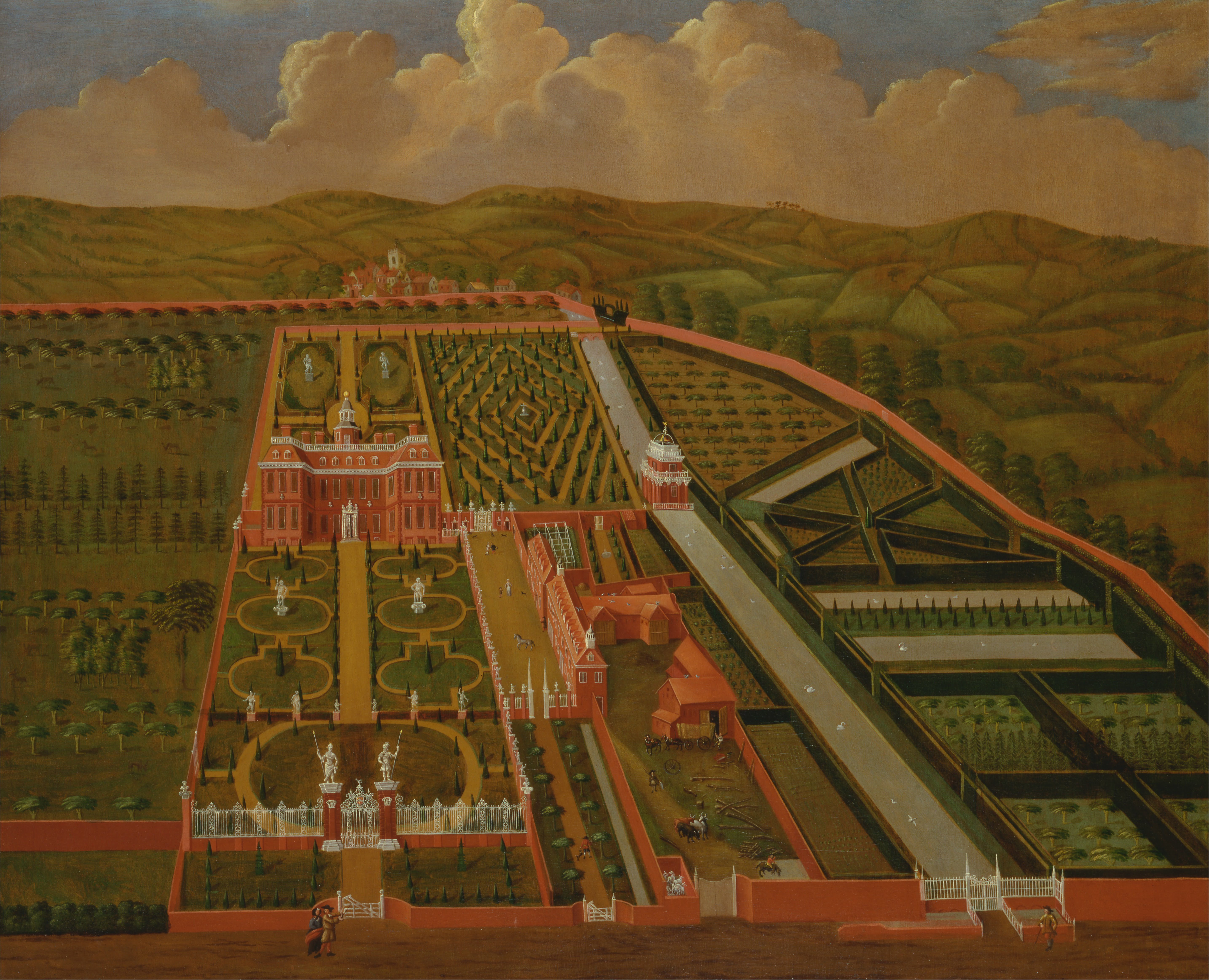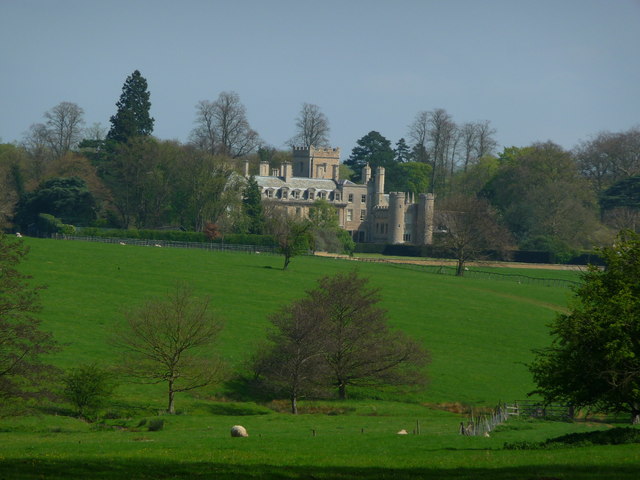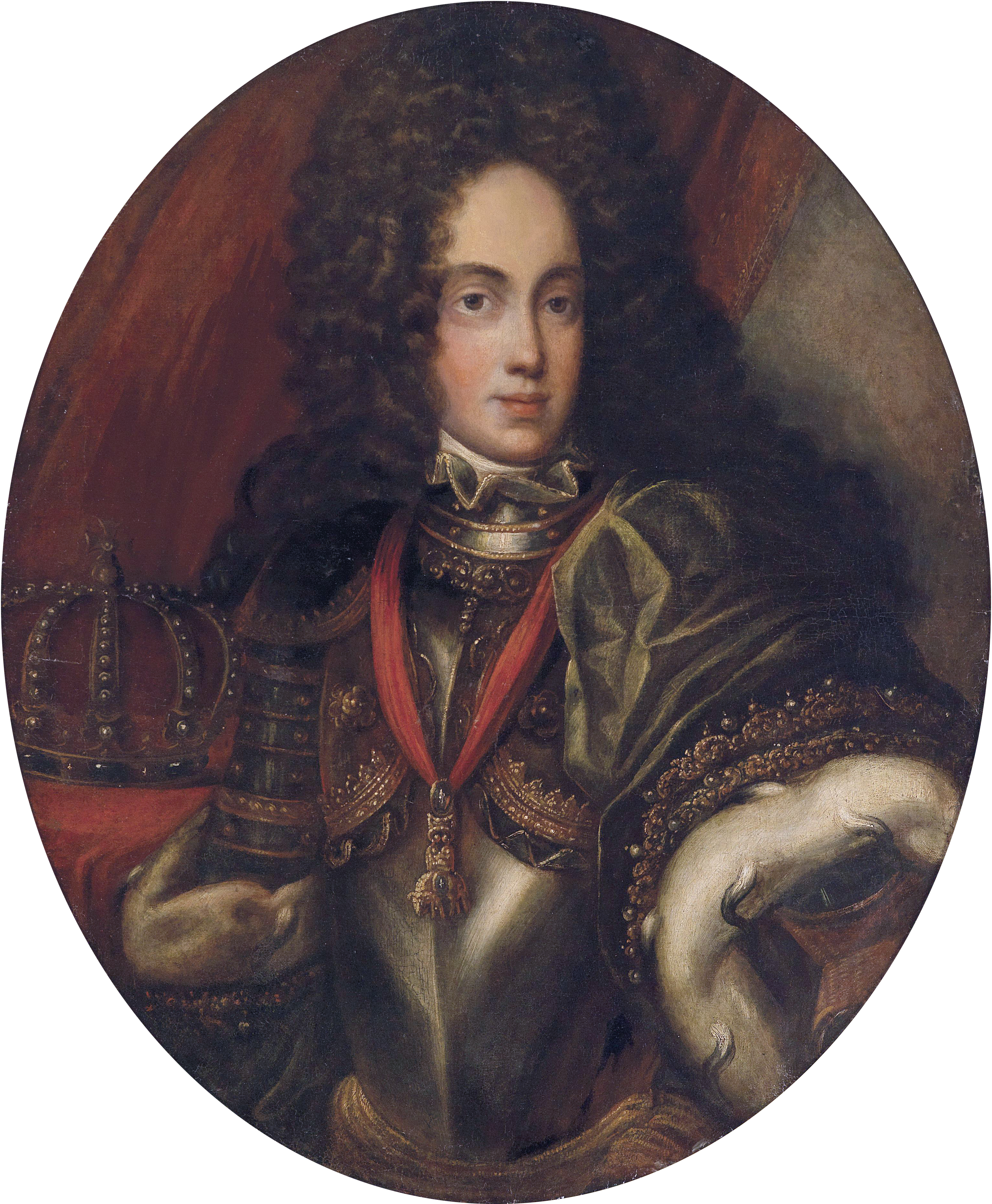|
Roger Hill (of Denham)
Sir Roger Hill (19 June 1642 – 29 December 1729) of Denham Place, Buckinghamshire was an English landowner, courtier and Whig politician who sat in the English and British House of Commons between 1679 and 1722. Hill was the eldest surviving son of Roger Hill of Poundisford Park, Somerset and his second wife Abigail Gurdon, daughter of Brampton Gurdon of Assington, Suffolk. He was admitted at Jesus College, Cambridge on 8 June 1658 and admitted at the Inner Temple in 1657, where he was called to the bar in 1666. He was planning to follow his father into the legal profession, but his father died in 1667, and he succeeded to the Poundisfoot estate. In 1667, he married Abigail Lockey, the daughter of John Lockey of Holmshill, Hertfordshire, He was knighted in July 1668. He was appointed a Gentleman of the privy chamber in 1668, a position he held until 1685. In 1670, he bought the manor of Denham from the Bowyers and rebuilt the house there between 1688 and 1701. He sold ... [...More Info...] [...Related Items...] OR: [Wikipedia] [Google] [Baidu] |
Denham Place
Denham is a village and civil parish in the unitary authority of Buckinghamshire, England, approximately from central London, northwest of Uxbridge and just north of junction 1 of the M40 motorway. The name is derived from the Old English for "homestead in a valley". It was listed in the Domesday Book of 1086 as ''Deneham''. Denham contains the Buckinghamshire Golf Club. Buildings The Church of England parish church of Saint Mary has a flint and stone Norman tower and Tudor monuments. The tree-lined Village Road includes several old red brick houses with mature ''Wisteria'' on them, and has been used as a location in British films and television. Southlands Manor is a Grade II listed building. Its entry on the English Heritage website states that it was built in the 16th century, with a variety of later changes including the addition of four chimney stacks in the early 17th-century. Analysis of a sample of timbers from the main building and its associated barn have found th ... [...More Info...] [...Related Items...] OR: [Wikipedia] [Google] [Baidu] |
Thomas Proby
Sir Thomas Proby, 1st Baronet (18 October 1632 – 22 April 1689) of Elton Hall, Huntingdonshire (now Cambridgeshire) was an English politician who sat in the House of Commons between 1660 and 1685. Proby was the son of Sir Heneage Proby (of Elton and Raans, Buckinghamshire) and his wife Ellen Allen, daughter of Edward Allen, of Finchley, Middlesex. In 1660, Proby was elected Member of Parliament for Amersham in the Convention Parliament. He was re-elected MP for Amersham in the Cavalier Parliament and sat until 1679. He was created a baronet in 1662. In 1679 he was elected MP for Huntingdonshire and sat until 1685. He carried out a number of improvements to Elton Hall. Proby died at the age of 56. Family Proby married Frances Cotton, daughter of Sir Thomas Cotton, 2nd Baronet of Connington, Huntingdonshire. His daughter Alice married the Hon. Thomas Watson-Wentworth MP, and had an only child, Thomas Watson-Wentworth, 1st Marquess of Rockingham Thomas Watson-Went ... [...More Info...] [...Related Items...] OR: [Wikipedia] [Google] [Baidu] |
Alumni Of Jesus College, Cambridge
Alumni (singular: alumnus (masculine) or alumna (feminine)) are former students of a school, college, or university who have either attended or graduated in some fashion from the institution. The feminine plural alumnae is sometimes used for groups of women. The word is Latin and means "one who is being (or has been) nourished". The term is not synonymous with "graduate"; one can be an alumnus without graduating ( Burt Reynolds, alumnus but not graduate of Florida State, is an example). The term is sometimes used to refer to a former employee or member of an organization, contributor, or inmate. Etymology The Latin noun ''alumnus'' means "foster son" or "pupil". It is derived from PIE ''*h₂el-'' (grow, nourish), and it is a variant of the Latin verb ''alere'' "to nourish".Merriam-Webster: alumnus .. Separate, but from ... [...More Info...] [...Related Items...] OR: [Wikipedia] [Google] [Baidu] |
People From Buckinghamshire
A person ( : people) is a being that has certain capacities or attributes such as reason, morality, consciousness or self-consciousness, and being a part of a culturally established form of social relations such as kinship, ownership of property, or legal responsibility. The defining features of personhood and, consequently, what makes a person count as a person, differ widely among cultures and contexts. In addition to the question of personhood, of what makes a being count as a person to begin with, there are further questions about personal identity and self: both about what makes any particular person that particular person instead of another, and about what makes a person at one time the same person as they were or will be at another time despite any intervening changes. The plural form "people" is often used to refer to an entire nation or ethnic group (as in "a people"), and this was the original meaning of the word; it subsequently acquired its use as a plural form o ... [...More Info...] [...Related Items...] OR: [Wikipedia] [Google] [Baidu] |
Politicians From Somerset
A politician is a person active in party politics, or a person holding or seeking an elected office in government. Politicians propose, support, reject and create laws that govern the land and by an extension of its people. Broadly speaking, a politician can be anyone who seeks to achieve political power in a government. Identity Politicians are people who are politically active, especially in party politics. Political positions range from local governments to state governments to federal governments to international governments. All ''government leaders'' are considered politicians. Media and rhetoric Politicians are known for their rhetoric, as in speeches or campaign advertisements. They are especially known for using common themes that allow them to develop their political positions in terms familiar to the voters. Politicians of necessity become expert users of the media. Politicians in the 19th century made heavy use of newspapers, magazines, and pamphlets, as well ... [...More Info...] [...Related Items...] OR: [Wikipedia] [Google] [Baidu] |
1729 Deaths
Seventeen or 17 may refer to: *17 (number), the natural number following 16 and preceding 18 * one of the years 17 BC, AD 17, 1917, 2017 Literature Magazines * ''Seventeen'' (American magazine), an American magazine * ''Seventeen'' (Japanese magazine), a Japanese magazine Novels * ''Seventeen'' (Tarkington novel), a 1916 novel by Booth Tarkington *''Seventeen'' (''Sebuntiin''), a 1961 novel by Kenzaburō Ōe * ''Seventeen'' (Serafin novel), a 2004 novel by Shan Serafin Stage and screen Film * ''Seventeen'' (1916 film), an American silent comedy film *'' Number Seventeen'', a 1932 film directed by Alfred Hitchcock * ''Seventeen'' (1940 film), an American comedy film *''Eric Soya's '17''' (Danish: ''Sytten''), a 1965 Danish comedy film * ''Seventeen'' (1985 film), a documentary film * ''17 Again'' (film), a 2009 film whose working title was ''17'' * ''Seventeen'' (2019 film), a Spanish drama film Television * ''Seventeen'' (TV drama), a 1994 UK dramatic short starring Christi ... [...More Info...] [...Related Items...] OR: [Wikipedia] [Google] [Baidu] |
1642 Births
Year 164 ( CLXIV) was a leap year starting on Saturday (link will display the full calendar) of the Julian calendar. At the time, it was known as the Year of the Consulship of Macrinus and Celsus (or, less frequently, year 917 ''Ab urbe condita''). The denomination 164 for this year has been used since the early medieval period, when the Anno Domini calendar era became the prevalent method in Europe for naming years. Events By place Roman Empire * Emperor Marcus Aurelius gives his daughter Lucilla in marriage to his co-emperor Lucius Verus. * Avidius Cassius, one of Lucius Verus' generals, crosses the Euphrates and invades Parthia. * Ctesiphon is captured by the Romans, but returns to the Parthians after the end of the war. * The Antonine Wall in Scotland is abandoned by the Romans. * Seleucia on the Tigris is destroyed. Births * Bruttia Crispina, Roman empress (d. 191) * Ge Xuan (or Xiaoxian), Chinese Taoist Taoism (, ) or Daoism () refers to either a s ... [...More Info...] [...Related Items...] OR: [Wikipedia] [Google] [Baidu] |
Richard Steele
Sir Richard Steele (bap. 12 March 1672 – 1 September 1729) was an Anglo-Irish writer, playwright, and politician, remembered as co-founder, with his friend Joseph Addison, of the magazine ''The Spectator''. Early life Steele was born in Dublin, Ireland, in March 1672 to Richard Steele, a wealthy attorney, and Elinor Symes (''née'' Sheyles); his sister Katherine was born the previous year. He was the grandson of Sir William Steele, Lord Chancellor of Ireland and his first wife Elizabeth Godfrey. His father lived at Mountown House, Monkstown, County Dublin. His mother, of whose family background little is known, was described as a woman of "great beauty and noble spirit". His father died when he was four, and his mother a year later. Steele was largely raised by his uncle and aunt, Henry Gascoigne (secretary to James Butler, 1st Duke of Ormonde), and Lady Katherine Mildmay. A member of the Protestant gentry, he was educated at Charterhouse School, where he first met ... [...More Info...] [...Related Items...] OR: [Wikipedia] [Google] [Baidu] |
Richard Grenville (1678–1727)
Sir Richard Grenville (1678 – 17 February 1727) was a British politician who sat in the House of Commons from 1715 to 1727. Early life Grenville was the son of Sir Richard Grenville of Wotton in Buckinghamshire and his wife Eleanor Temple née Tyrell, the wife of Sir Peter Temple of Stantonbury, Buckinghamshire. He married Hester Temple, the daughter of Sir Richard Temple, 3rd Baronet by a licence of 25 November 1710. Her brother was Richard Temple, 1st Viscount Cobham whose peerage was entailed upon her and her sons. Political career Grenville was proposed as Whig candidate for Buckinghamshire at the 1715 general election but by an agreement with Richard Hampden he was elected Member of Parliament for Wendover instead. At the 1722 general election he was returned unopposed as MP for Buckingham on the interest of Lord Cobham. Death and legacy Grenville died on 17 February 1727 in the last year of that parliament and his children were taken care of by his brother-in-law Lord ... [...More Info...] [...Related Items...] OR: [Wikipedia] [Google] [Baidu] |
James Stanhope, 1st Earl Stanhope
James Stanhope, 1st Earl Stanhope (c. 16735 February 1721) was a British soldier, diplomat and statesman who effectively served as Chief Minister between 1717 and 1721. He is also the last Chancellor of the Exchequer to sit in the House of Lords. Born in Paris as the son of a prominent diplomat, Stanhope pursued a military career. Although he also served in Flanders and Italy, he is best remembered for his service in Portugal and Spain during the War of the Spanish Succession. He was the first British Governor of Minorca, which he captured from the Spanish in 1708. In 1710 he commanded the British contingent of the Allied Army which occupied Madrid, having won a decisive victory at the Battle of Zaragoza. Having then evacuated the Spanish capital, Stanhope's rearguard on the retreat to Barcelona were overwhelmed and forced to surrender at Brihuega. Paroled, he returned to Britain and pursued a political career as a Whig. A supporter of the Hanoverian Succession he wa ... [...More Info...] [...Related Items...] OR: [Wikipedia] [Google] [Baidu] |
Henry Grey (MP)
Henry Grey (17 August 1683 – 9 September 1740) was a British Whig politician who sat in the House of Commons between 1709 and 1740. Grey was born as Henry Neville, the younger son of Richard Neville of Billingbear House in Berkshire and his wife Katherine Grey, daughter of Ralph Grey, 2nd Baron Grey of Werke. He travelled abroad in Holland, Germany, Italy and France between 1699 and 1700. In 1707, he changed his surname to Grey by Act of Parliament to inherit the estates of his uncle Ralph Grey, 4th Baron Grey of Werke, in Northumberland. Grey entered Parliament for Wendover at a by-election on 21 November 1709, through the influence of his friend Richard Hampden. He successfully contested this seat at the 1710 British general election, but was defeated when he stood at Orford in the same election. Financial difficulties and attempts to sell his northern estates precluded him from taking an active part in Parliament. He was politically a Whig, and voted against peace ... [...More Info...] [...Related Items...] OR: [Wikipedia] [Google] [Baidu] |
Thomas Ellys (MP)
Thomas Ellys (1685–1709), of Mitre Court, Inner Temple, was a Member of Parliament for Wendover Wendover is a market town and civil parish at the foot of the Chiltern Hills in Buckinghamshire, England. It is situated at the point where the main road across the Chilterns between London and Aylesbury intersects with the once important road a ... in 1708 – 24 May 1709. References 1685 births 1709 deaths Members of the Inner Temple British MPs 1708–1710 Members of the Parliament of Great Britain for English constituencies {{England-GreatBritain-MP-stub ... [...More Info...] [...Related Items...] OR: [Wikipedia] [Google] [Baidu] |



_1938.jpg)

_-_Sir_Richard_Steele_-_NPG_3227_-_National_Portrait_Gallery.jpg)
